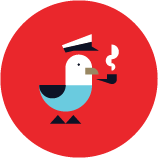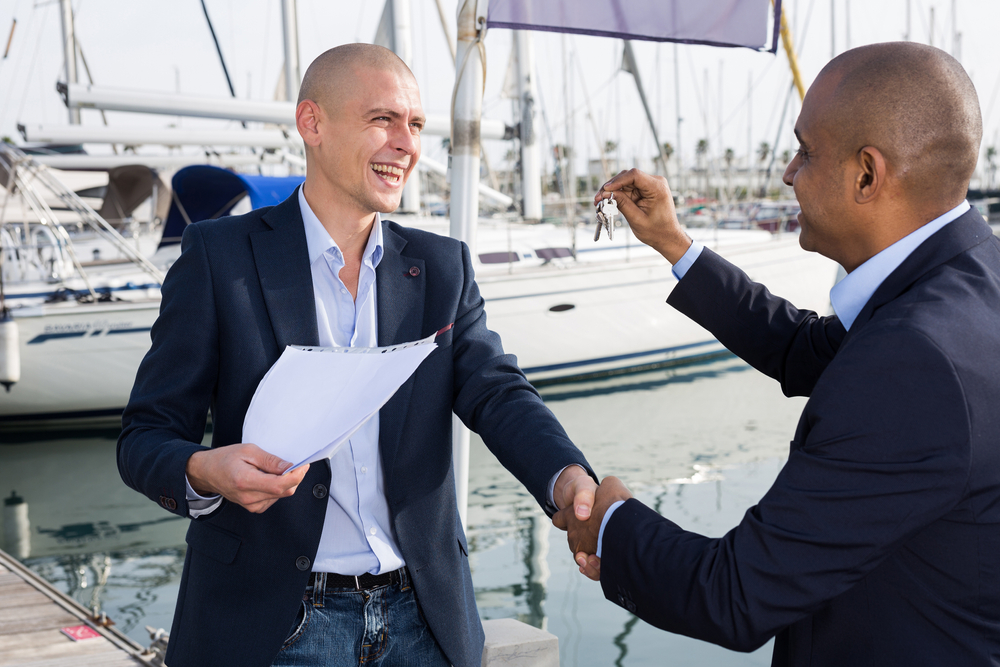If your eyes haven’t glazed over, keep scrolling. We know this topic is painful (more so to your wallet), so we’ll spare you the unsexy...
Buying Fuel for Your Boat? Here's How to Avoid Fuel Spills!
Post by Tripp Messinger - Published on 04/08/22 14:00 PM

Estimations project 25% of smaller craft boats will have a costly, accidental spill at the fuel dock. So, as you head out on the water–and to the fuel pump–here are some ways you can be more intentional about reducing the risk of spills.
1. Know your boat's fuel tank size
Know how much fuel you need for a full tank. If you have a broken fuel gauge, welcome to the club! They seem to be the first thing to go on any vessel. Still, it’s essential to know how large your tank is and how much you need to fill it. Even if it’s a ballpark range, a close estimate will save you crucial time and, slowly but surely, will help your wallet as well. Boating Valley has aggregated some helpful benchmarks for fuel tank by boat type. To be extra confident, you can contact the manufacturer or ask the question to boat owners of the same model in boating forums like The Hull Truth.

2. Know the tell-tale sound of a fuel tank near full
If you know the ballpark range of what your boat's tanks can hold, you're ready for the ever crucial second step. Ready? Listen... That's all. There is a distinct sound a tank will make when it's close to full (the last ½-gallon or so). When you hear it once, you'll know it every time moving forward. When fuel gauges break, which they do, this tell-tale sound will help you save money as you won't overflow it, time as you won't need to hang around with the deckhands helping clean up your mess with fuel sorbs, and most of all, embarrassment. If you are accustomed to relying on spillage as your indicator, you don't know enough about your vessel and are causing real risk to the marina and waters.
3. Do not top off your boat's fuel tank
We repeat, do not top off your boat’s fuel tank. Fuel docks aren’t the quietest or most peaceful place. When noisy surroundings prevent you from hearing when your tank is full, stay safe and DON’T top it off. When topping off at the tank with a car, the pumps have reliable automatic shut-offs, and with 15 gallons, an extra gallon can get you pretty far. Unfortunately, this is not the case in the boating world, as fuel pumps are often old and have faulty automated shut-offs or no automated shut-offs, and the extra ½-gallon you put in your boat won’t get you far. More importantly, the spillage risk you create is too significant.
4. Do not chock the handle of a fuel pump
DO NOT chock the handle. Whether with a water bottle, fuel key, lighter, or what have you, jimmying the handle so you can leave your vessel unattended as it fuels doesn’t help anyone.
We get it. Fueling can take a long time, especially if you have a slow-speed pump and your boat takes on anything over 100 gallons. Still, propping the handle is far from safe. When filling, always have someone monitoring the pump, as chocking the handle can significantly delay your response time if a spill occurs.

5. What to do if your boat spills gas or oil
While we've designed these tips to help you prevent spills, knowing what to do when a fuel spill occurs is imperative. First, identify the source and try to stop the flow immediately. While you're doing that, ask a fellow boater to alert the marina staff. They will be able to help you address the spill in the short term and call the U.S. Coast Guard's National Response Center at 1-800-424-8802 as required so they can determine what clean-up response is best.
While it can be a little nerve-racking to make a mistake like this, it's crucial to address it. Leaving without notifying the marina crew about the spill is damaging to marine life and risky for the other boaters and marina crew. If you report someone at the marina, they can help remedy it.
6. Don't use boat soap with fuel spills
There is a grave misconception that pouring Dawn, or any other type of dish soap on the spill, will correct your mistake. However, it’s tough to argue because, after all, this “magic” dish soap will clean your red hands and free you from the guilt of your spill as it seemingly disappears.

Unfortunately, there is no magic involved in dish soap ingredients, and all adding dish soap accomplishes is to make the fuel from a spill denser than before, sinking it to the bottom of the seafloor. Your mess is out of sight and out of mind, but ultimately the spillage falls to the bottom of the ocean and stays there. What could have evaporated off the water’s surface from the sun will now harm ocean life for up to a century. If you spill fuel, ask for a fuel absorbent pad (fuel sorb), clean up as much as possible, and let mother nature and the beautiful sun do the rest of the work for you. You’ve done the environment a tremendous favor, even on a cloudy day, by letting it sit on the surface rather than sinking it to the bottom.
Still on the fence about using soap for your spills? Think back to BP’s 2010 oil spill. BP used Nalco, a BP subsidiary, to spread Corexit. This chemical made the oil on the surface denser, thereby letting it sink to the ocean floor, making it toxic and lethal to all sea animals, not just the ones at the gulf's surface. BP made it appear that the spill was gone when in reality, the environmental disaster was, and is, simply hiding below the surface. Like Corexit, dish soap is an oil dispersant that lowers the tension between oil and water, which, in turn, causes the oil to break into smaller droplets and sink due to the increase in density.
7. Bonus tip: Don't catch fire
If it wasn’t obvious already, never smoke anywhere near a fuel dock, and always remember to shut your engine off. If this is tough to remember, you'll receive no judgment from us. Just add a piece of masking tape with a reminder right by the fuel tank. 
With these tips, you’ll drastically decrease your spills, which, in return, will save you plenty of time, money, and a lot of embarrassment while protecting our oceans!
Happy Spill-free Boating! Once you're fueled up and ready to go, you can rely on Dockwa to book your next slip or mooring and plan your next adventure!
Be sure to check out our other blog posts to get an inside look at our favorite destinations, marinas, liveaboards, and tips for boaters. Join the conversation on Flipboard, Facebook, Twitter, and Instagram.




